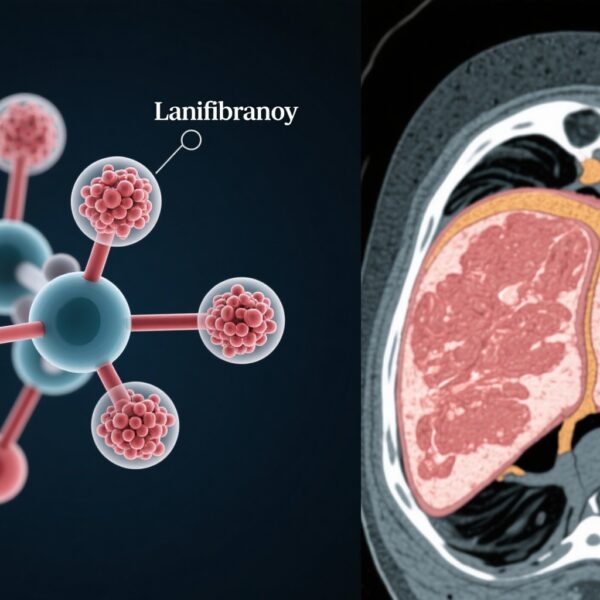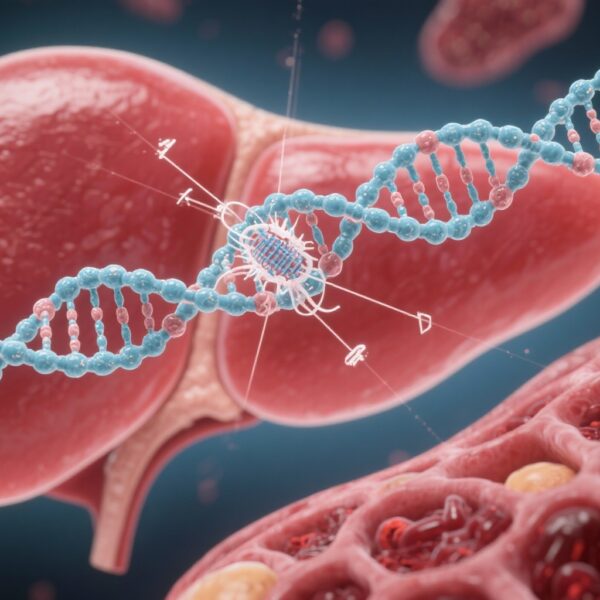Highlight
- FMT is safe and well tolerated in cirrhotic patients with recurrent hepatic encephalopathy (HE) despite maximal medical therapy.
- HE recurrence significantly decreased in patients receiving any FMT compared to placebo, regardless of dose, administration route (capsule or enema), or donor diet (vegan vs. omnivorous).
- Higher baseline gut abundance of Lachnospiraceae and successful donor microbiota engraftment correlated with reduced HE recurrence and improved quality of life.
Study Background and Disease Burden
Hepatic encephalopathy (HE) is a frequent and debilitating neuropsychiatric complication of cirrhosis, characterized by cognitive dysfunction ranging from mild confusion to coma. It results from multifactorial disturbances in the gut-liver-brain axis, driven by impaired ammonia metabolism, systemic inflammation, and dysbiosis—a disrupted gut microbiota composition. Despite current standard-of-care therapies such as lactulose and rifaximin targeting ammonia reduction and bacterial overgrowth, HE recurrences remain common, negatively impacting prognosis and limiting eligibility for liver transplantation. This clinical challenge highlights an unmet medical need for adjunctive interventions that restore gut microbial homeostasis and prevent HE relapse.
Emerging evidence from phase I studies suggests that fecal microbiota transplantation (FMT), which involves administering stool from a healthy donor to restore microbial diversity, could improve cognitive function and decrease HE episodes. However, optimal dosing, route of delivery, safety, and donor selection remain undetermined. The THEMATIC trial addresses these critical questions in a rigorously designed phase II randomized, placebo-controlled, double-blind study, evaluating the safety and efficacy of capsule and enema-delivered FMT from different donor types in patients with cirrhosis and prior overt HE already on maximal medical therapy.
Study Design
The study enrolled 60 adults with cirrhosis and history of overt HE, all receiving stable lactulose and rifaximin therapy. Participants were randomized equally into four groups (n=15 each) receiving a combination of two oral capsules and one enema at each dose visit over three dosing times:
1. Three active FMT doses
2. Two active FMT doses plus one placebo dose
3. One active FMT dose plus two placebo doses
4. Three placebo doses
Each subject therefore received two capsules and one enema per dosing session, with the content being either FMT or placebo accordingly. Donor stool was sourced from individuals following either a vegan or omnivorous diet to assess potential influence on outcomes. Follow-up lasted six months post-intervention.
Primary outcome was safety, assessed as FMT-related adverse events (AEs) and serious adverse events (SAEs) using intention-to-treat principles. Secondary outcomes included incidence of HE recurrence, all-cause hospitalizations, mortality, donor microbiota engraftment assessed by microbiome sequencing, and patient-reported quality of life (QoL) measures.
Key Findings
Safety analysis demonstrated no FMT-related SAEs or AEs, affirming tolerability irrespective of dose number, route of administration, or donor diet. Overall rates of SAEs and deaths were statistically comparable between treatment arms (p=0.96 for SAEs; p=1.0 for mortality).
HE recurrence within six months differed significantly between the four groups (p=0.035, Cramer’s V=0.39). Post hoc analyses revealed that the all-placebo group experienced the highest recurrence rate at 40%, whereas any FMT-exposed group had a markedly lower recurrence of 9% (odds ratio 0.15, 95% CI 0.04–0.64). Importantly, HE recurrence did not vary significantly among the FMT groups regardless of dosing regimen (one to three doses), route of delivery (capsules versus enema), or donor diet type.
Quality of life measured via validated instruments improved in FMT recipients compared to placebo, suggesting symptomatic benefit beyond biochemical control.
Microbiome analysis identified donor microbial engraftment as a key mechanistic correlate. Patients with higher baseline gut abundance of Lachnospiraceae, a beneficial bacterial family implicated in gut barrier integrity and anti-inflammatory effects, showed greater engraftment of donor strains and a lower risk of HE recurrence. Conversely, lower Lachnospiraceae abundance prior to FMT was linked with reduced engraftment and increased HE relapse.
Expert Commentary
The THEMATIC trial represents a pivotal exploration into microbiome-based therapeutics for hepatic encephalopathy—a condition with few effective preventive options beyond antibiotics and non-absorbable disaccharides. The phase II randomized, placebo-controlled, double-blind design strengthens the validity of findings and supports translational potential.
The absence of FMT-related safety signals is reassuring given concerns surrounding infection risks in immunocompromised patients with cirrhosis. The equivalence of efficacy across oral and enema routes offers clinical flexibility, while the similar outcomes across donor types are intriguing and warrant further study to elucidate donor microbiota features influencing response.
A notable mechanistic insight is the role of Lachnospiraceae in facilitating donor microbiota engraftment, which is associated with prevention of HE recurrence. This aligns with emerging literature highlighting gut microbial metabolites and barrier function in hepatic encephalopathy pathophysiology. Future studies may validate Lachnospiraceae as a biomarker for patient selection or therapeutic targeting.
Limitations include modest sample size limiting power for subgroup analyses, short follow-up duration, and lack of mechanistic endpoints such as ammonia levels and inflammatory markers. Nevertheless, these findings pave the way for larger multicenter trials to confirm clinical benefits and optimize FMT protocols.
Conclusion
The THEMATIC phase II trial establishes fecal microbiota transplantation as a safe and potentially effective adjunct therapy to reduce hepatic encephalopathy recurrence in patients with cirrhosis on maximal conventional therapy. Safety profiles were favorable regardless of dose, administration route, or donor character. Importantly, FMT recipients exhibited lower HE recurrence rates and improved quality of life compared to placebo. Microbial engraftment, particularly involving Lachnospiraceae, emerged as a critical factor linked with therapeutic success.
These findings support continued clinical development of microbiota-based interventions in HE and emphasize the need for personalized approaches guided by baseline microbial signatures. Incorporating FMT or related microbiome-modulating strategies into routine clinical practice could significantly alter the management landscape for this challenging complication of cirrhosis.
References
Bajaj JS, Fagan A, Gavis EA, Sterling RK, Gallagher ML, Lee H, Matherly SC, Siddiqui MS, Bartels A, Mousel T, et al. Microbiota transplant for hepatic encephalopathy in cirrhosis: The THEMATIC trial. J Hepatol. 2025 Jul;83(1):81-91. doi:10.1016/j.jhep.2024.12.047. Epub 2025 Jan 10. PMID: 39800192.
Vilstrup H, Amodio P, Bajaj J, Cordoba J, Ferenci P, Mullen KD, et al. Hepatic encephalopathy in chronic liver disease: 2014 practice guideline by AASLD and EASL. Hepatology. 2014;60(2):715-735. doi:10.1002/hep.27210.
Kelly CR, Ihunnah C, Fischer M, et al. Fecal microbiota transplant for treatment of Clostridium difficile infection in immunocompromised patients. Am J Gastroenterol. 2014;109(7):1065-1071. doi:10.1038/ajg.2014.131.


